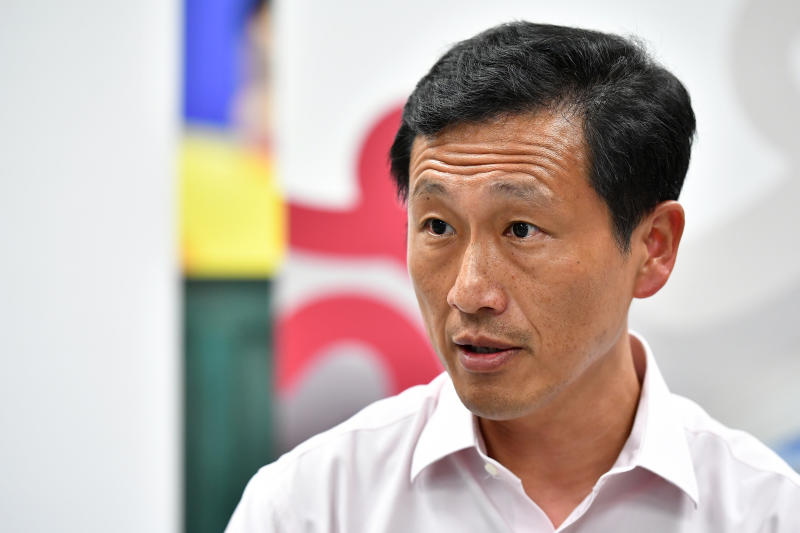Global rankings barely capture the work of universities: International expert panel
Sign up now: Get tips on how to help your child succeed

Education Minister Ong Ye Kung said each of Singapore's six autonomous universities has its own focus, as well as social and economic mission.
ST PHOTO: LIM YAOHUI
Follow topic:
SINGAPORE - Current university rankings are too crude as they measure institutions against the same one-size-fits-all criteria, said Education Minister Ong Ye Kung.
This was also the consensus of an international panel of experts who concluded a three-day meeting on Friday (June 29).
"We need a much more variegated approach," said Mr Ong, who sat in on the meetings, adding that each of Singapore's six autonomous universities has its own focus, as well as social and economic mission.
"Perhaps we need to have different kind of measurements, different kinds of metrics, that can gauge the success and achievements of each of our universities," he said at the end of the International Academic Advisory Panel meeting.
The panel, now in its 11th edition, meets every two to three years to advise the Education Ministry and Singapore's universities on education and research trends.
Deputy Prime Minister Tharman Shanmugaratnam is chairman of the panel, which has 11 other representatives from leading organisations and universities, such as Imperial College London and Cambridge University.
The heads of Singapore's six autonomous universities were also present during the meetings.
This year, panel members discussed three key topics: the value of a degree, lifelong learning and impactful research.
Professor Stephen Toope, vice-chancellor of Cambridge University, said a key message was to not pay too much attention to global rankings, and instead find ways to assess universities based on their main missions.
He said: "It's especially important here in Singapore. It's a small country with only a limited number of universities," he said, adding that different universities have different roles.
"Rankings tend to pull everyone back to a mean and make it seem as if there's only one model of university that's right. I think that's a fundamental misconception."
Mr Ong said there was strong agreement among panel members that Singapore's efforts in moving towards experiential learning, such as internships and overseas exposure, is on the right track.
Singapore Management University provost Lily Kong said: "It's not about provision of knowledge because that's available everywhere. It's about throwing students into the real world, getting hands and feet dirty and learning that way."
The university leaders also mulled over their role in supporting adult learners, although panel members agreed that Singapore is ahead of other countries in its push for lifelong learning.
One recommendation is to help working adults better assess the quality of courses available and curate suitable learning options for them.
Prof Kong said: "We're still thinking through, working through the different pedagogies that are needed for different types of learners - the experienced worker versus the fresh-faced undergraduate.
"We're thinking through the different business models that universities have to adopt and adapt in the face of these changes."
Professor Henrik Wegener, rector of University of Copenhagen, said with the wave of digital disruptions, even university graduates are at risk of losing their jobs.
He said: "Universities have a very important role to play there which they have not played before. Our faculty is not used to teaching adult learners. Our institutions' offerings are not adapted to the needs of adult learners... so there is a lot of work to do."

